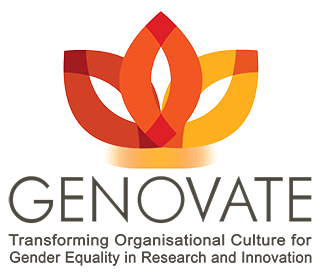 The GENOVATE Community is a platform which enables GENOVATE partners to share institutional information and case studies, and facilitates the coordination of a buddy system for bench learning.
The GENOVATE Community is a platform which enables GENOVATE partners to share institutional information and case studies, and facilitates the coordination of a buddy system for bench learning.
The GENOVATE Community consist of seven GENOVATE partner institutions; the GENOVATE International Advisory Board; key strategic collaborators and stakeholders and the general public. It is a mechanism designed to facilitate meaningful knowledge exchange across the community at local, national and international levels within each of the partner institutions’ countries, across Europe and globally.

The FUI - datacenters project at Luleå University of Technology, Sweden aims to create a world leading region for datacenter establishments. This project has focus on development of the datacenter industry, based on the regional datacenter strategy that has been developed for the Northern Sweden. As women are still not choosing tech careers it limits the pool of qualified people available and this is one of the drivers of the project to strive for a more inclusive working environment in the datacenter industry.
The first action to integrate gender dimension in the project's core activities is the establishment of a gender-balanced management team with diverse competencies. The project has virtual bi-weekly management team meetings and once a month the management team meets face-to-face. Gender dimension is an agenda item at all meetings. Among other things the project focus on inclusive communication and the gender and diversity are addressed when carrying out interviews with companies. FUI is one of several ongoing initiatives at the university when trying to integrate gender dimension into the design, process, content and implementation of research and innovation.
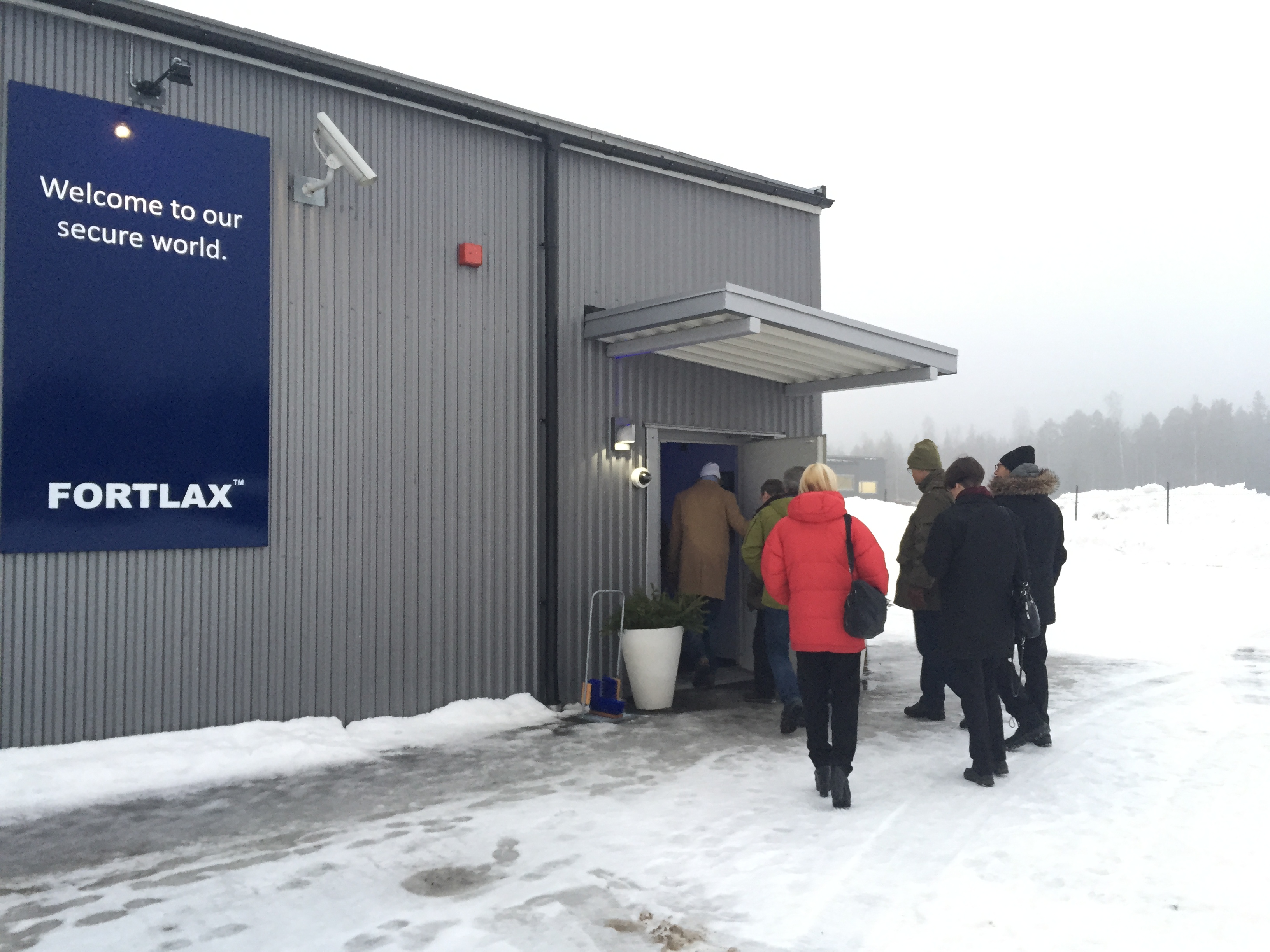

The Swedish government is investing 2,5 million euros in making the country’s higher education sector gender equal. Thirty-three universities and university colleges will receive gender mainstreaming support from the Swedish Secretariat for Gender Research. The four-year programme was officially launched in Stockholm on the 16th of April.
Read more about the programme on http://www.genus.se/en/newspost/new-programme-for-gender-equality-in-swedish-higher-education/
Ylva Fältholm and Paula Wennberg were invited to an expert dialogue on February 9, 2016 in Stockholm organised by the Swedish Secretariat for Gender Research to discuss which challenges the programme should focus on when mainstreaming gender in the Swedish Higher Education.
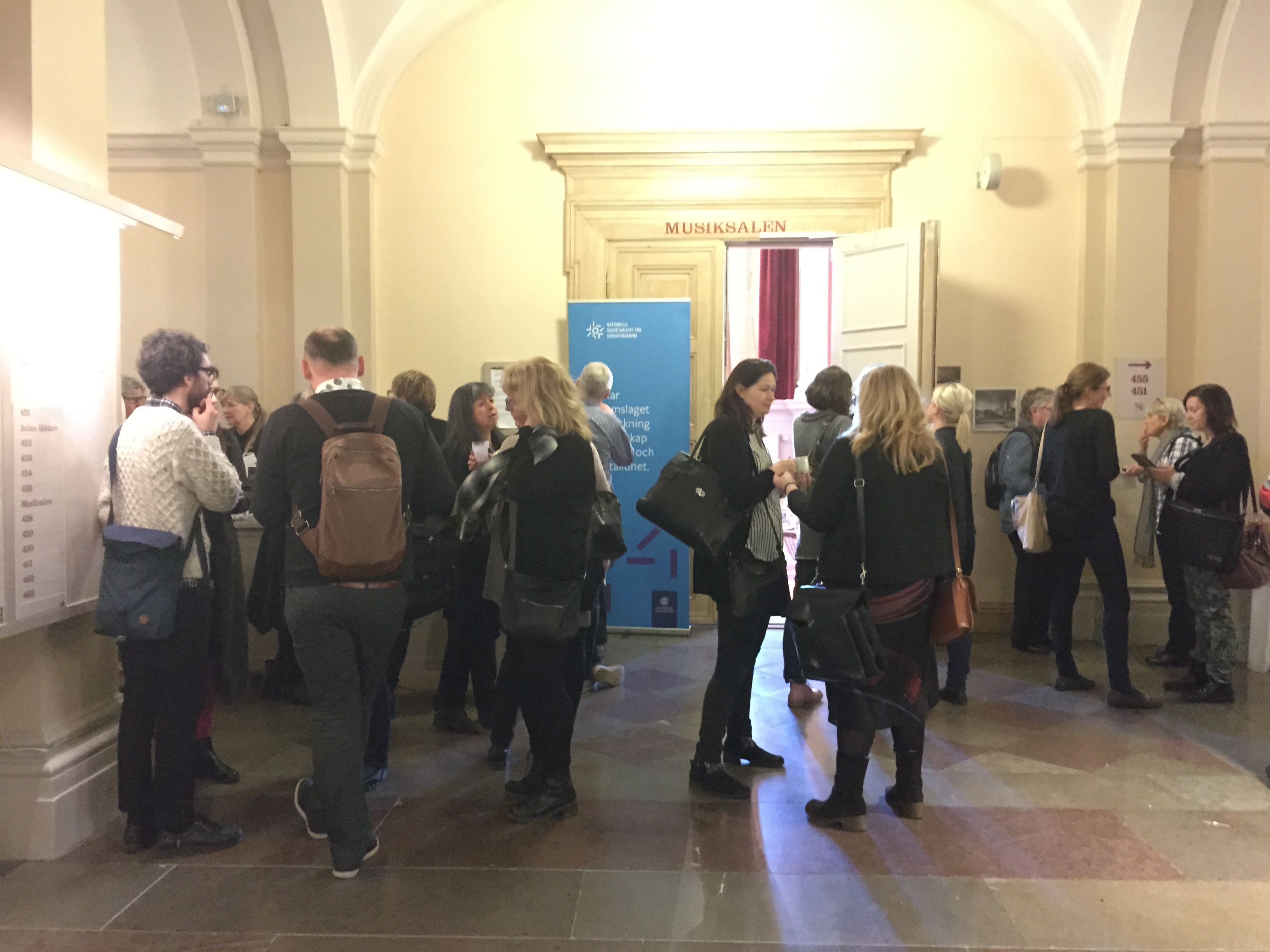
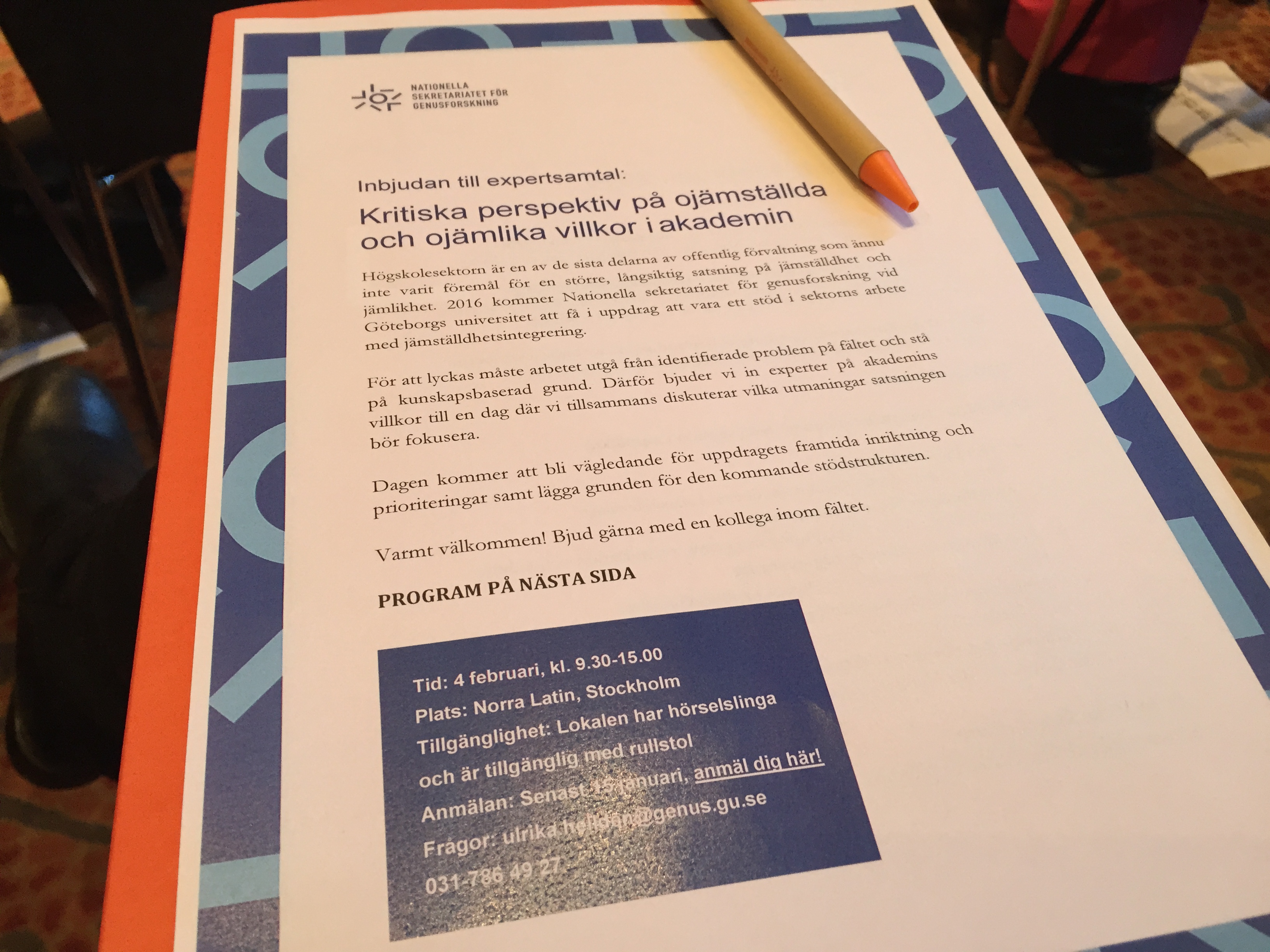

The seminar on a gender and equal opportunities perspective in research projects and funding applications with Paula Wennberg, LTU as invited speaker brought together 25 participants from diverse disciplines of Uppsala University. Åsa Cajander, associate professor of human-computer interaction, the organiser of the seminar on February 29, 2016 has a role of the gender equality officer at the university.
- Funding organisations such as Vinnova, VR and Forte now require a gender and equal opportunities perspective. When applying for funding we hence need to describe how we incorporate gender and equal opportunities in the project work, such as in tests. We also need to describe how the project team from a gender and the equal opportunities perspective, and also the contribution of the mix of gender, ethnic and cultural diversity. One should note that the assessment of the applications is based on the strength of the gender and equal opportunities perspective in the project description. In this seminar we will discuss how to set up projects that are strong from a gender and equal opportunities perspective, and we will be provided with concrete examples of such project descriptions.
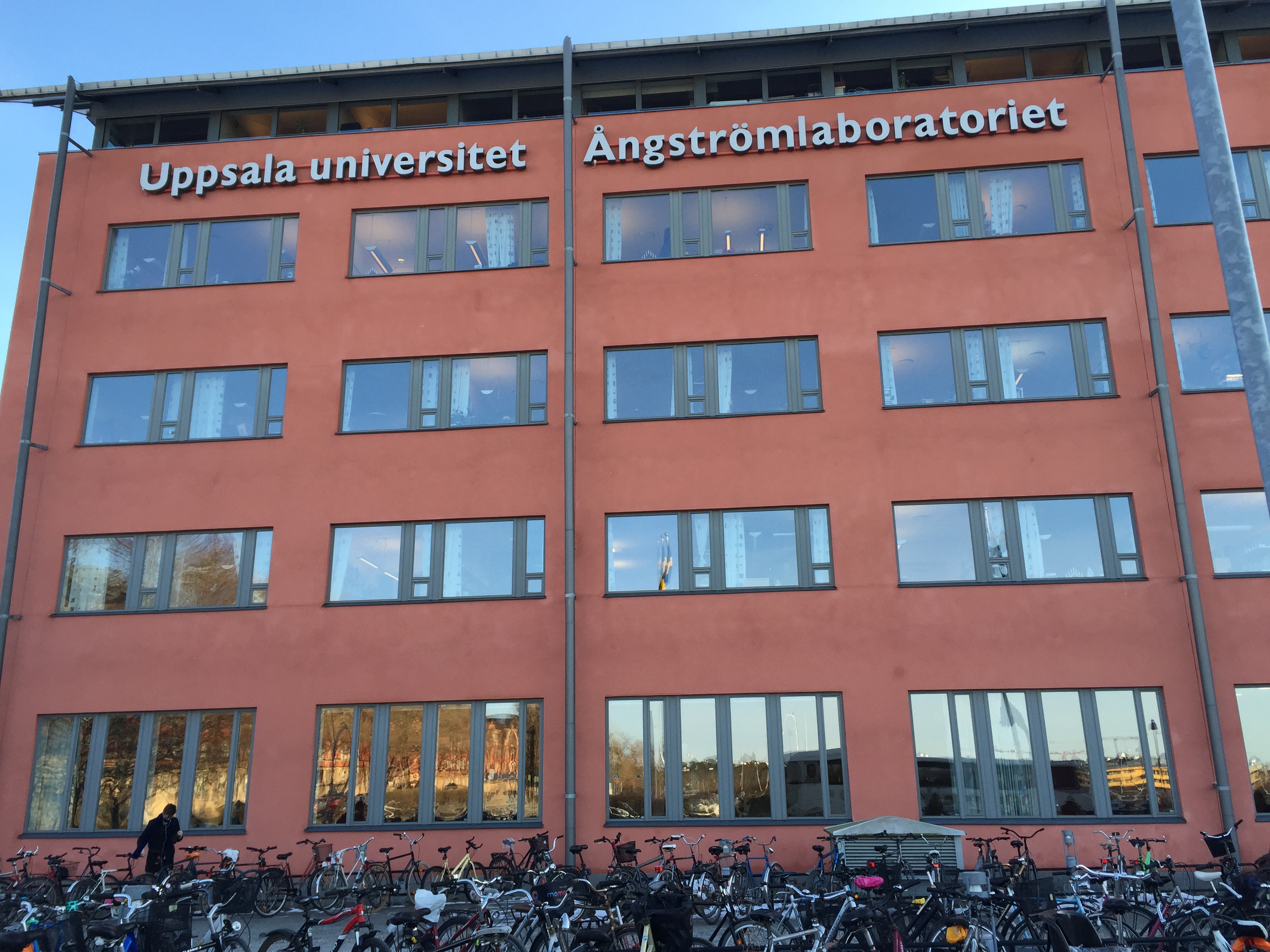

Very much in line with the LTU team's Gender Equality Action Plan strategy, we integrate gender dimension into the design, process, content and implementation of research and innovation.
- The League of European Research Universities (LERU) launched a new advice paper on the topic "Gendered Research and Innovation: Integrating sex and gender analysis into the research process" in Brussels. The report shows how gendered research and innovation, or GRI, is an under-recognised issue, which too often is not incorporated into the design, process, content and implementation of research.
Professor Simone Buitendijk, vice-rector magnificus of the Universiteit Leiden, a steering group member of the LERU Gender Working Group and main author of the report, says: “Gendered Research and Innovation [GRI] matters; it goes beyond gender equality, it is about the design, content and validity of research. Our paper is part of a growing awareness that GRI is essential to face global challenges. The major problems facing our world cannot be addressed without comprehensive, multi-disciplinary, evidence-based research which includes GRI.”
Read more onhttp://www.universityworldnews.com/article.php?story=20150917134646113#.Vsv52fajuWE.twitter

The kick-off meeting of a new working group on cultures and diversity in research management and administration was held on November 25, 2015 with Susi Poli (Italy), Olaf Svenningsen (Denmark) and Paula Wennberg (Sweden) as proposers. EARMA (European Association of Research Managers and Administrators) is one of the GENOVATE stakeholder organizations. We also submitted an abstract to the EARMA annual conference 2016 in Luleå.
The objectives of the new working group (WG CD) are
- to gain an understanding of the effects and impacts of cultures and how to cope with these
- to share cultures within the ERA
- to valorise differences in research and in the practice of research management
- to create value through cultural and gender awareness
- to be prepared for possible and/or likely future cultural clashes/challenges


The support of the 10 GECATs established in UNINA (in the Departments of Architecture, Biology, Physics, Ingeneering, Mathematics, Public Health, Chemistry, Geology, Economics, Social Sciences) has been important in several occasions during the last months. In particular, during the last weeks we asked their help in involving young researchers for the public event Futuro Remoto 2015, to be held on the 15-18 of October in Naples. In fact, GENOVATE will participate in this event, both presenting the activity of the GENOVATE team for the implementation of the UNINA GEAP and helping the young women of our institution in describing their scientific research. Several GECATs came to the aid of the GENOVATE team indicating the names of valuable researchers, which will participate in the event.
Powered by Multicategories for Joomla!2.5